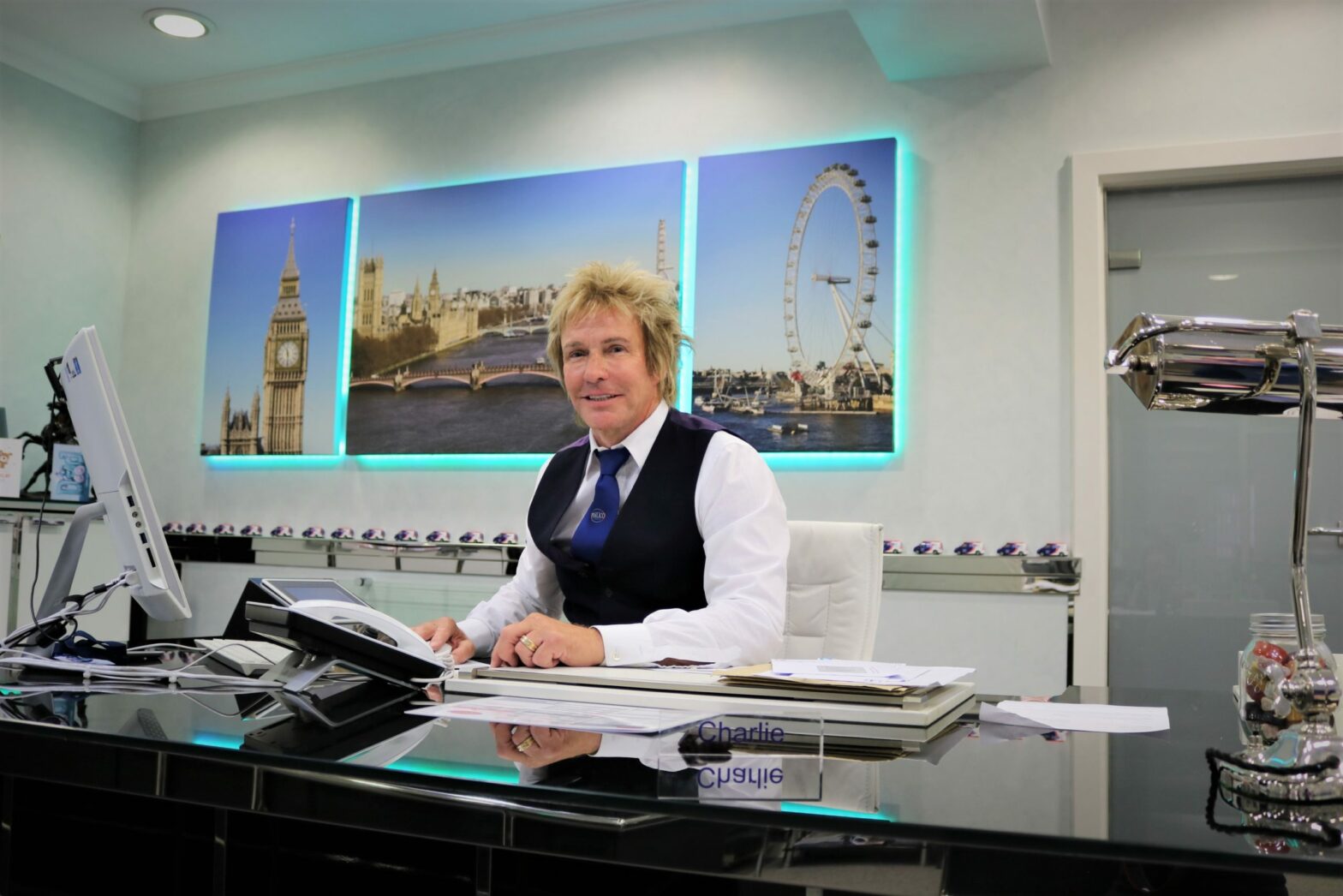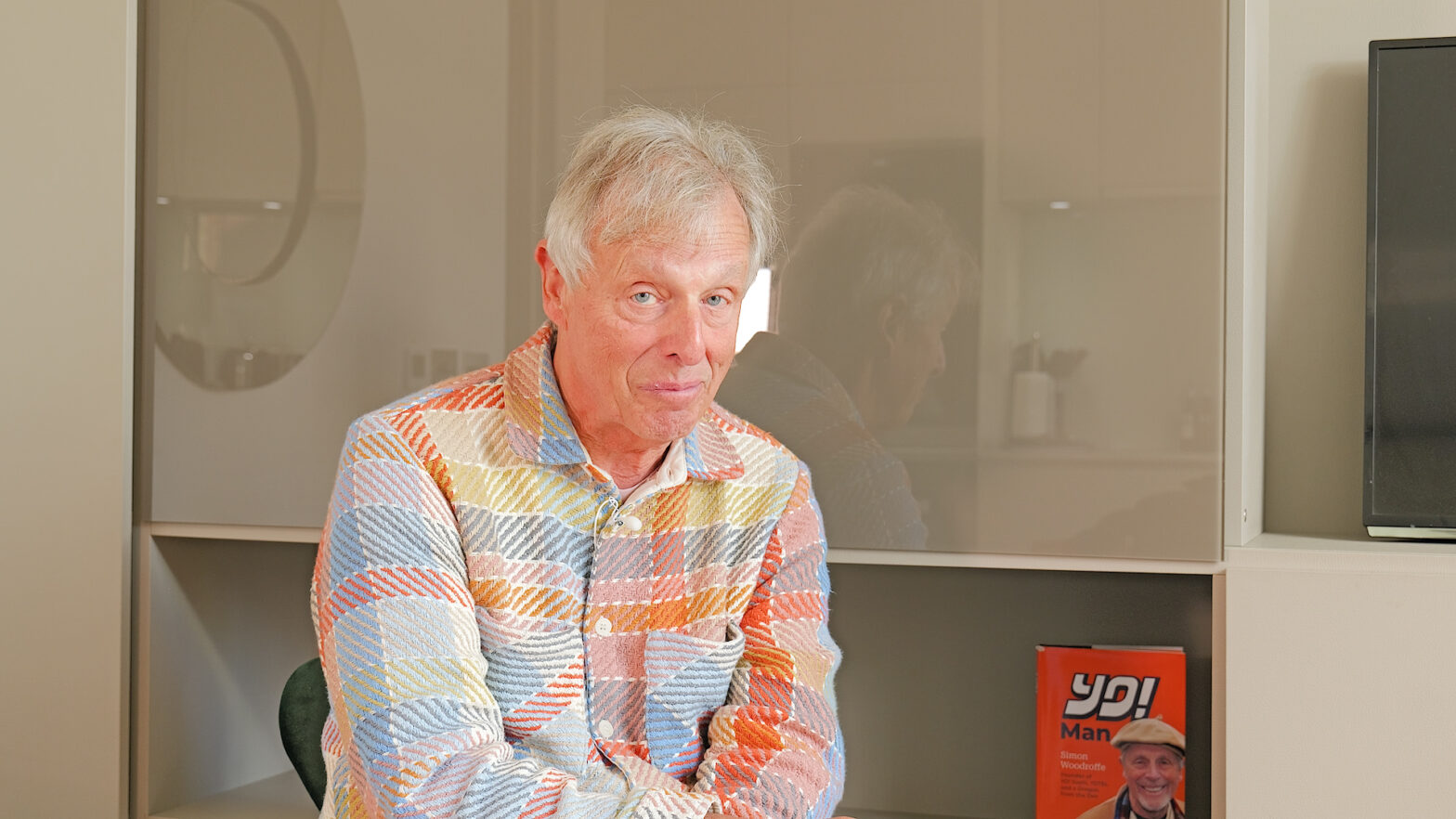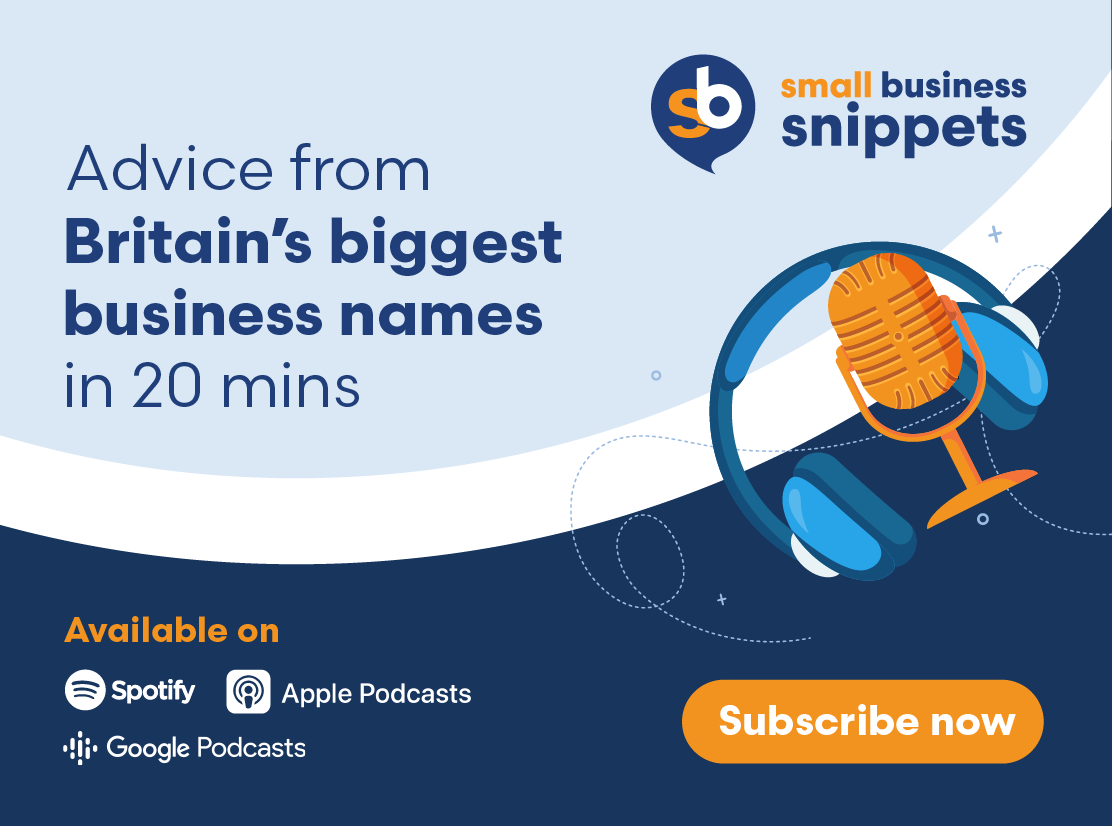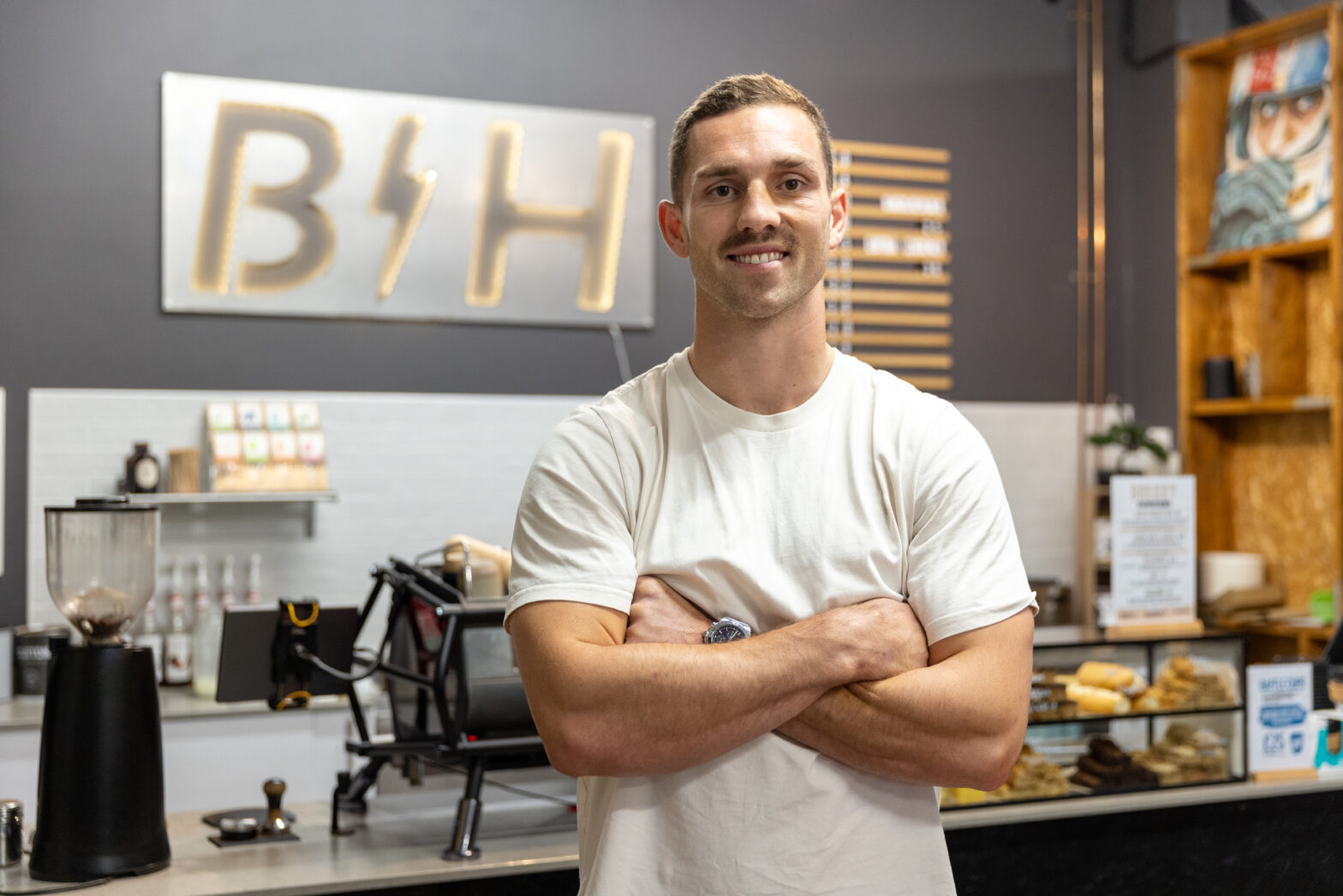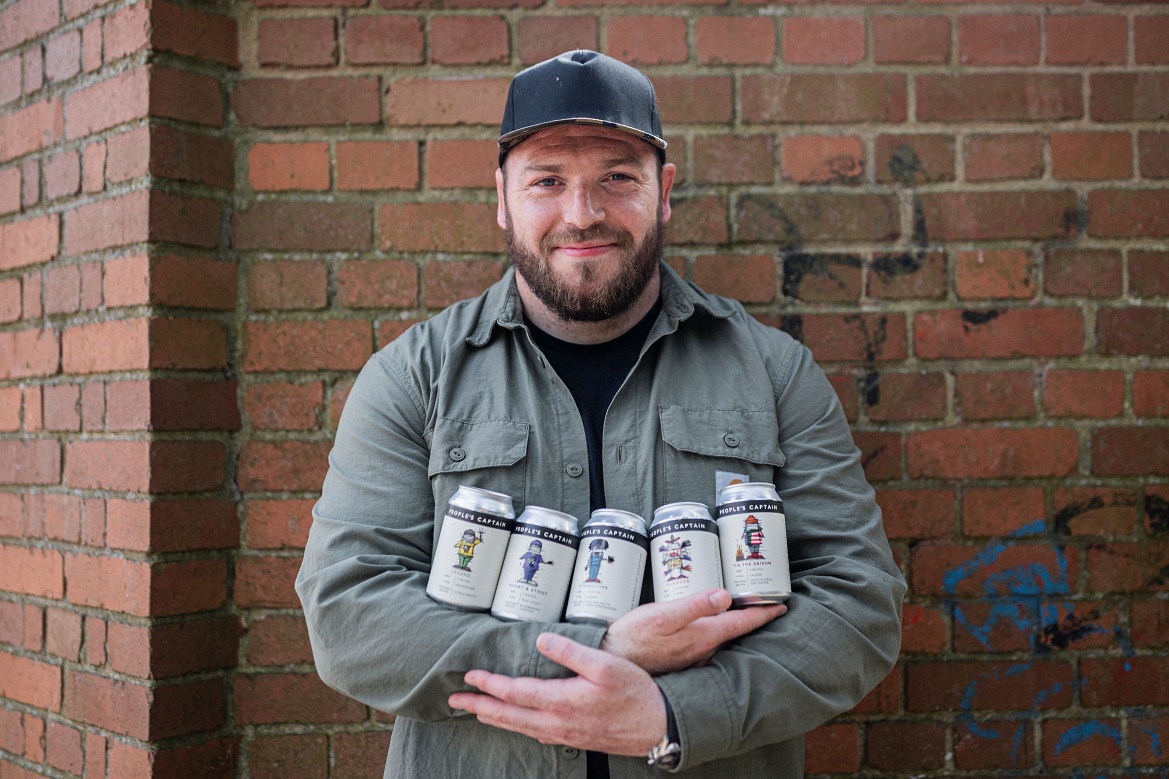Welcome to Small Business Snippets, the podcast from SmallBusiness.co.uk. Today’s guest is Charlie Mullins, founder and chairman of Pimlico (formerly Pimlico Plumbers).
We talk about how to build a customer base in the early days and upcoming IR35 changes.
Listen to it in the media player below:
You can also catch our episodes with:
- Retail expert and former Dragon, Theo Paphitis
- Author and boardroom expert, John Tusa
- Digital guru and investor, Sherry Coutu
- Entrepreneur and former Dragon, Rachel Elnaugh
- Businesswoman and Dragon, Deborah Meaden
- Entrepreneur and The Apprentice 2005 candidate, Tim Campbell
- Gousto CEO, Timo Boldt
- Entrepreneur and The Apprentice 2018 candidate, Jackie Fast
- Investor and former Dragon, Piers Linney
- Investment fund manager, Nicola Horlick
- Supermodel turned entrepreneur, Caprice
We’ve got podcast episodes from the first series looking at:
- How one business owner’s mental breakdown caused her to see trolls from her past
- How one entrepreneur hired a videographer to track their every move and build their business brand
- How funding a business led one entrepreneur to stress-related alopecia
- One entrepreneur’s first professional public speaking engagement
- Adapting to UK life and learning English before starting a business
- Securing seed funding
- Finding the perfect head of customer care
- Reaching a £1 million annual rate of return
- Boosting client numbers from 30 to 850
- Starting a brand new business from scratch
To find out more about Small Business Snippets, you can download the trailer.
If you want to listen to the podcast elsewhere, it’s available on iTunes, Google Play, SoundCloud and Spotify. It’d also be great if you could leave us a review and subscribe.
Remember to like us on Facebook @SmallBusinessExperts and follow us on Twitter @smallbusinessuk, all lower case.
Would you prefer to read Charlie Mullins’ podcast interview instead?
Hello and welcome to Small Business Snippets, the podcast from SmallBusiness.co.uk. I’m your host, Anna Jordan.
Today we have Charlie Mullins, businessman and founder of Pimlico Plumbers, now known as Pimlico.
After finishing an apprenticeship in plumbing, Charlie launched Pimlico Plumbers in 1979. He started out with a second-hand van and a bag of tools, gradually building up the business. Pimlico reached a £1m turnover in 1994 and currently has a turnover in excess of £50 million. In 2015, Charlie was awarded the UK’s first OBE in relation to plumbing.
Earlier this year, his son Scott took on the role of chief executive while Charlie went into the role of chairman.
Anna: Hi Charlie.
Charlie: Hi Anna. Thanks very much for having us on. Been looking forward to this so I’m very excited, thank you.
Anna: Great stuff. How are you doing today?
Charlie: Very good. I’m in Marbella in Spain at the moment and we have a small business out here – also to do with Pimlico – and yeah, life’s good.
I’m going to come back right to the beginning of the business, and a lot of our small business owners are in the early stages themselves. And I’m sure they’re wanting to know how you built up your customer base in the early days, especially without tools like social media.
Charlie: Yeah, well, thinking back then, back in 1979, I finished my apprenticeship and had been working as self-employed, and then started working in the Pimlico area. I started getting repeat work and that undoubtably, whatever service you’re offering, is quality of service. That’s what’s going to get you customers and keep you busy. I have to say I was a pretty good plumber and offering the service to people required.
It starts with word of mouth and then other people will recommend you to other customers. I quickly learned that the art of it is to retain your customer and back in them days, I think I was working on that basis, and you go to these customers regularly, and that would just sort of get more and more. I quickly learned that it’s retaining a customer that gets you through. First of all, it gives you a customer base, and then it gets you through any difficult times that you may like recessions or lack of work.
As the business has progressed, we have a policy now at Pimlico once you’re a Pimlico customer, we work on the basis that you’re a Pimlico customer for life. I would say to anybody starting out, retaining your customer is the way to build up a great customer base.
What is the secret to retaining the customer?
Charlie: Quality of service. Quality of service can mean many things: turning up on time, dressing correctly for the for the job, having identification on you, be very transparent in what you’re doing, make people aware of your rates before you start, get the job done, tidy up after you. And I think in general, just your sort of behaviour in somebody’s house or for a customer, just be as professional as you can. That could be whether you’re in their house, or you’re running a business from the internet, or you’re sort of got a shop or whatever you got. Undoubtedly, the way forward is quality of service, whether it be a product, whether it be something you’re fixing, something you’re selling, it’s all about quality of service.
Anna: I think part of the reason that you became successful was there is a bit of a reputation for cowboy plumbers back then and you wanted to set yourself apart.
Charlie: Yeah, well, again, I had the idea that, I thought that when I first started Pimlico that I was doing anything clever, I just thought it was common sense things. I know common sense isn’t that common.
I wrote a list down of all the things – or not all the things, but about 20 items that I’ve heard over the years that customers get unhappy with a plumber. You can do that in any business you’re in. Find that what upsets customers and just do the opposite. So, customers used to be very unhappy about a plumber not turning up on time, not finishing the job, leaving a mess, not clearing away any rubbish not being transparent, making excuses why they’re not a job, so I thought just done the opposite.
In business I’ve also learned to be honest, if you’re not getting there because you’ve got delayed or you’re running late or you can’t make it, be honest with the customer. Not keep making excuses about ‘I broke my arm’ or ‘my van’s broken down’. I’ve learned is that customers don’t want excuses. They want results.
I understand that financing is essential to the running of a business, especially when you’re trying to grow. I know that when you’re trying to expand Pimlico plumbers, back in 1990, you sought out help from the bank but unfortunately, they turned you down. Can you go a little bit into what happened there and how you overcame it?
Charlie: Yeah, well, the business in 1990 was going okay. And what I wanted to do was buy a different premises to operate from, a larger premises. Basically, I went to the bank and they and they lent me the money to buy this property – it was about a quarter million pounds, this was December 1990. Everything was going great. They lend me that money and then around about April, all of a sudden, the recession’s kicked in, maybe I wasn’t that aware of it. The recession kicks in, and then the bank basically comes down, I was getting in difficulties with run-ups and debts and didn’t get on top of things.
They came down to reassess the property to see whether I could get some more money on it, keep things going. They actually went the other way and told me it’s not worth a quarter million pounds now – that’s worth £50,000. So, I’d ripped it all out to refurbish it for when we were going to move in, and all of a sudden, it was a property not finished.
Basically, I was trying to get an overdraft and keep things going, or even a loan, but they weren’t having none of it. If anything, well, they just went the other way. They said, ‘Look, we want our money back.’
And I know people think they can’t force you into it, but I borrowed it on another property that I’d owned. And they said to put that property in an auction and I’d get £45,000 for it. Well, I didn’t do that. I sold it for £90,000 in the end. With the property that I had in the I was borrowed the money for, they told me to sell that and give them the money I get on it. Well, I didn’t listen to them. Well, I don’t like banks anyway, they’re crooks in suits – they lend you an umbrella as long as it’s not raining.
Anna: I think people do underestimate the power that banks have, especially in situations like these.
Charlie: Well, what you mustn’t get into is a situation where the banks running your business, telling you what you can do and what you can’t do. And they were difficult with me so I said to myself, ‘I need to get rid of you people’. So, we carried on working, sold a few bits and pieces, made a lot of changes in the business and got rid of the bank.
I’ve changed banks, I don’t I’m not sure how good banks are these days with businesses. All I do know is that thing I’ve been with this bank since about 1991/92. I’ve never met my bank manager. I never will. There’s just no point now – I can’t work with them. They just left a bad taste with me, as far as I’m concerned. All I do now with the bank is put money in and take it out.
Part-way through business, you decided to steer away from solely doing plumbing into other services like air conditioning, carpentry, commercial heating services, what kind of challenges did you face in shifting Pimlico’s business model?
Charlie: Yeah, it wasn’t overly difficult because what I was finding that, with plumbers and engineers, we were sending them to jobs and then customers had a carpenter and needed an electrician, or they had wall damage and needed a plasterer. I just found it so difficult to recommend people because not everybody works on the policy that we work on or the way that we operate.
And again, that what I have to say is that it’s only common sense and being very professional. But there are so many bad tradesmen out there – I’m not suggesting that’s all over because there’s some great tradesmen out there. So, the fact that they kept asking for people, and I wasn’t comfortable recommending anybody, we started getting our own people. We started employing a carpenter, employing a builder, employing a plasterer.
When you go to a job, and if the customer’s happy with you, and all sudden, you’ve got to send a carpenter or another tradesman, they’re even happier with you because it just flows nice. And they know what they’re going to expect. If we’re running it on the same terms, which we did, and it’s just developed from there, we we’ve got roofers, air con, electricians, carpenters, painters, tilers. Yeah, all in everything, I think.
Were there any sort of changes in legislation or anything related that you had to deal with in taking on different kinds of tradespeople?
Charlie: Well, we’ve got one set of rules and regulations for everybody, so everybody follows our guidelines. And whatever requirements are needed for electrical work, or gas work or roofing work, there’s just a formality. The most important thing is that you’ve got your rules and regulations worked out and everybody complies with that.
If it’s a successful model, then why would you need to change anything? You just follow the same pattern. And to this day now, like 40 years down the line, it’s the same thing.
We’re seeing with a lot of small businesses right now that they are indeed changing their own business model, say going and taking more of their service online or offering takeaway service at home meal kits, that kind of thing. How has Pimlico adapted to the changing conditions around COVID-19? Because it’s not just a central office, you’re going into people’s homes as well. I can imagine there is more to do in that respect.
Charlie: Well, you’re right, the world has changed and it’s changed businesses. And again, you have to improve your quality of service to people. And immediately, what we’ve done was geared up all our tradespeople that go to people’s houses with all the requirements: gloves, shoe covers, sanitisers, sinks in their vans, masks. We’ve got them all geared up correctly, we’ve also done the same for our office: social distancing, temperature machines we’ve got in there, all the bits that you need to run proper business.
And I don’t think it’s a big deal if you think about it. It’s just like a few things that you put in place. Unfortunately, a lot of people with things in business, they make it too complicated. We didn’t stop throughout the epidemic, we haven’t stopped and we won’t stop. We were allowed to continue working, being essential workers, but we just made sure that it’s a safe working environment.
From a customer’s point of view, we would bring them up and say that you can just let the engineering leave the door open, you haven’t got to be in the same room. He’ll come in, do the job, leave, close the door, then you obviously pay by credit card. And that went down quite well with customers.
That isn’t so how much the case now. People seem to be getting a little bit more used to the situation, the virus is out there, but some people are very cautious. And we’re doing what we’re required to do, and it’s welcome.
How do the rules and the guidelines that you give to employees translate to contractors?
Charlie: Look, engineers work on a self-employed basis. Some of them have been with me for 30 years, 10 years, five years, 20 years. There are a couple of differences about holiday, sick pay, but as far as working under their umbrella or working on a rules and regulations, it makes no difference whether you’re self-employed or employed, the guidelines are the same. You turn up, you do the job, you do what we want you to do, and that’s it. Okay, we’ve had a couple of problems, but it’s no big deal.
Another potential difficulty we will be facing in the future, year is we’ve got changes to IR35, coming in April. I do understand that there has been some ambiguity [for Pimlico] in the past around contractors’ status and their rights. I’m wondering, with these changes coming in, how exactly will that change the way you operate?
Charlie: Yeah, look, it won’t change the way we operate. What it changes is the contract for that engineer. If it says he’s not self-employed, then yes, the choice is PAYE or he needs to go somewhere else, basically.
But again, I’m going to say, I don’t think it’s a big deal. Unfortunately, if they’re not going to let them be self-employed, then obviously, they’re not going to earn as much, they’re not going to be able to claim so much, sort of tax deductions. But there are pluses – they get holiday pay, sickness and they can claim for unfair dismissal.
But our policy isn’t necessarily, we’re not trying to get rid of people, we want to retain our engineers. We went to the Supreme Court on this where one of the engineers evidently had a heart attack, but there was a little bit more in it than that, I don’t know why he had a heart attack, non-related to work, and he was self-employed for seven years. And all of a sudden, he wanted to take the advantages of being employed. And we knew that was incorrect.
But we went to the High Court and various other courts and it took about eight years, and the end result the Supreme Court came up with that he should have been an employee, but no big deal – we’ve changed their contracts – the tax people are happy with it, our accountants are happy with it, and we’re happy with it. If there’s big challenges out there, you just got to try and challenge it that works for everybody.
Contractors have already been hit quite hard by COVID. And I can imagine if employers are less willing to pay increased taxes and contributions, they may be get less work from their existing clients as well. How will these changes affect the balance of employees to contractors that you currently have?
Charlie: Well, it’ll affect the balance. If they can’t be self-employed, then they’ll have to be PAYE. But I don’t think we’ll be cutting their numbers down. I feel we can address it accordingly and work on something that everybody’s happy with. I don’t think that it’s a big deal but in the same token it’s just changes. And if that’s what we have to do, then that’s what we do.
There’s a massive demand for skilled workers who can demand good money. I think if you’re paying good money, you’re a good company and look after your staff, and keep them busy all year, then people are going to want to work for you.
The last question I want to ask is, as mentioned in the intro, your son Scott has taken over as chief exec. And Pimlico is very much a family business because his children, your grandchildren, are also heavily involved in the business. For our audience out there who have family businesses of their own, how do you set that line between work and family life and keep them separate?
Charlie: This is a difficult one, and I’m probably going to say, working with your family doesn’t work for everybody. And if it does, work it’s great and if it doesn’t work then it’s terrible, of course. How do you keep it separate? I just think that, obviously, when you’re at work, I don’t think family issues come up, or that you get too involved with family things.
And obviously, when you’re outside of work, you’re going to get involved in a little bit of family work things, but I think it’s nice to keep them separate as best you can. I didn’t really plan anything but when we’re at work and, as much as we’re family, I don’t feel that it’s the big part of it anymore. In other words, they’re doing the job, they’re happy doing it, we’re happy with them.
I know it’s difficult when you’ve got talk to a family member about it, but on saying that, most family members understand how you operate, and they follow the guidelines. But of course, there’ll be hiccups, bits and pieces.
I think we have about 12 or 13 members of family there and all I can say that it’s great because I think we’re all drinking from the same teapot. And it seems to work. But yeah, that’s been our uphill sort of tasks. I’m on my fourth wife now!
I’m joking. It can be difficult, but I think pluses outweigh the minuses. Look, you can’t run any business, whether it be your family or just other people working for you, without the ups and downs. With any business there’s going to be many sleepless nights, there’s going to be many struggling for money, but once you get it going, I mean, there’s no business like your own business.
Anna: Of course – I think that’s the reason that so many people go for it.
Charlie: Yeah, that’s right, and a lot of people that want to start their own business, they’re toying with the idea for years and playing around with it. They say, ‘I don’t know when’s the best time and Christmas is coming and winter’s coming’ and it comes every year, and then it’s, ‘This is bad, and the banks are not lending and interest rates’ and they ask me when’s the best time to start your own business.
Well, the best time to start your own business is when it suits you. You need to get up there and just make it happen, that’s what it’s about. All the talking doesn’t make you a busy business where actual action does, and you’ve just got to get it started. You got a 10,000-mile journey and that starts with the first step, you’ve got to make that first step in business. It just develops.
I mean, I didn’t set out to run the largest independent plumbing company or service company in the UK, I set out just to be a plumber. And once I got the bug a bit of the demand and you can employ somebody, and it goes from there. I say this to anybody starting out or even if you’re just a small business, the ways to become successful, obviously, quality of service, I’ll always say that’s number one. And number two is to employ people take on staff, whether it be friends, family or people you don’t know but are believed that you need to employ people to grow your business because this is not about one person. It’s a team affair and your business is only as good as the people that work for you.
Anna: Well, I think that is an ideal place to wrap up, so I’ll leave it there. Thank you very much for coming on the podcast, Charlie.
Charlie: That’s been good and obviously if anyone wants to check the website at pimlicoplumbers.com, there are some pieces on there.
As Charlie said, you can find out more about him at pimlicoplumbers.com You can also visit small business.co.uk for articles on building your customer base and running a family business. Remember to like us on Facebook at Small Business Experts and follow us on Twitter @smallbusinessuk, all lowercase. Until next time, thank you for listening.
